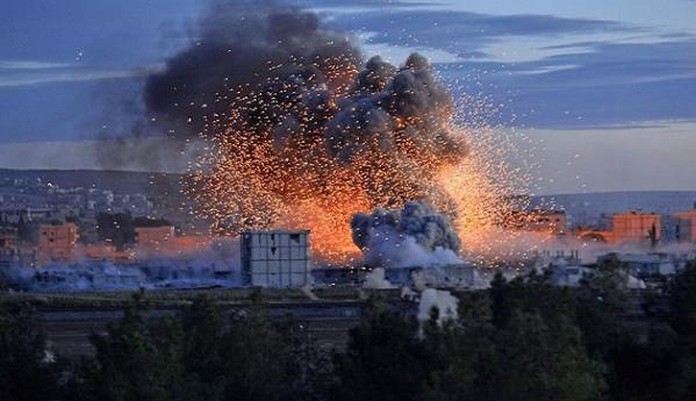
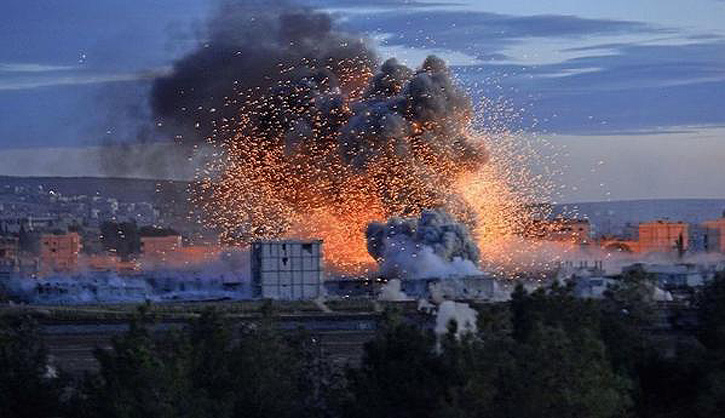
Islamic State continued to shell Kobani and engage with Syrian Kurdish forces on the ground after bolstering its ranks with troops from bases in Raqqa and Jarablus, local officials and a monitoring group said. The U.S. military said it launched four airstrikes against Islamic State (IS) near Kobani on Monday and Tuesday, destroying a large unit of fighters and a building controlled by the militant group.
While battles Between Islamic State Jihadists and Iraqi security forces and Kurds are raging throughout Iraq, another battle in Syria is capturing the world attention and gradually attracting a growing share of the US lead coalition assets – both aerial supplies and air strikes as part of operation Inherent Resolve. Compared to few tens of strikes conducted in Iraq at the same period, the Pentagon confirmed no less than 125 strikes around the town of Ein al Arab (Kobani) on the Syrian-Turkish border, where ISIS is battling Kurd PYD militias defending the town. These strikes have helped slow the Islamic State advances into the city, killing hundreds of jihadist fighters.
While Kurdish forces are providing some targeting support, the coalition air power is limited in its ability to acquire target data with adequate details for precision attack. At the beginning of the strikes, with limited intelligence of IS positions, only 90 of the campaign’s first 949 missions resulted in attacks. To improve intelligence collection and targeting the British MOD said it is sending unarmed Reaper drones and Rivet Joint electronic support aircraft to support missions over Syria. Weather was blamed to be part of the causes for insufficient targeting “With better weather, “intelligence, surveillance and reconnaissance platforms are able to fly a little bit more now” PentagonPress Secretary R.Adm John Kirby said.
Until recently, Turkey, that has been battling the Kurdish PKK movement for decades was reluctant to assist the Coalition air strikes the. However, in a reversal of policy, Turkey said Monday it allow 200 Iraqi Kurds to use Turkish territory to support the besieged Syrian Kurdish city of Kobani. The announcement comes after U.S. forces air-dropped military supplies into the city currently under assault by Islamic State militants. With Kobani under fire on three sides by Islamic State forces, the Turkish frontier is the only possible ground entry for resupplying the border city.

In Kobani, Syrian Kurds, known as theDemocratic Union Party (PYD), are calling for heavy weapons, in particular anti-tank missiles, to counter Islamic State tanks. According to unofficial reports, the US has been using targeting data provided by the Kurds, to conduct those strikes. The Kurds have also requested medical supplies, weapons and ammunition which have been delivered by three C-130 Hercules transport planes on Sunday night. However, close proximity to enemy forces caused some of the 28 pallets dropped over the town to reach IS troops instead of the besieged Kurds.
While divisions remain between the rival Kurdish political factions across the region, the onslaught of the Islamic State has brought them closer together. Ankara has been hesitant in allowing Peshmerga into Kobani to help the PYD. That’s because Turkey accuses the PYD of being linked to the PKK, a rebels group that both Ankara and the United States describes are terrorists. The PKK has fought for greater Kurdish rights in Turkey for three decades. Iraqi Kurds are considered by the Turks to be more conservative, and have partnered in the past with Turkish forces in fighting the PKK as well.
Limited by weather conditions, coalition fighter planes launched seven airstrikes on Monday, while U.S. forces, in coordination with Iraqi ground troops, conducted six airstrikes against the militant group in Iraq near Fallujah and Bayji with help from France and the United Kingdom, the statement said.
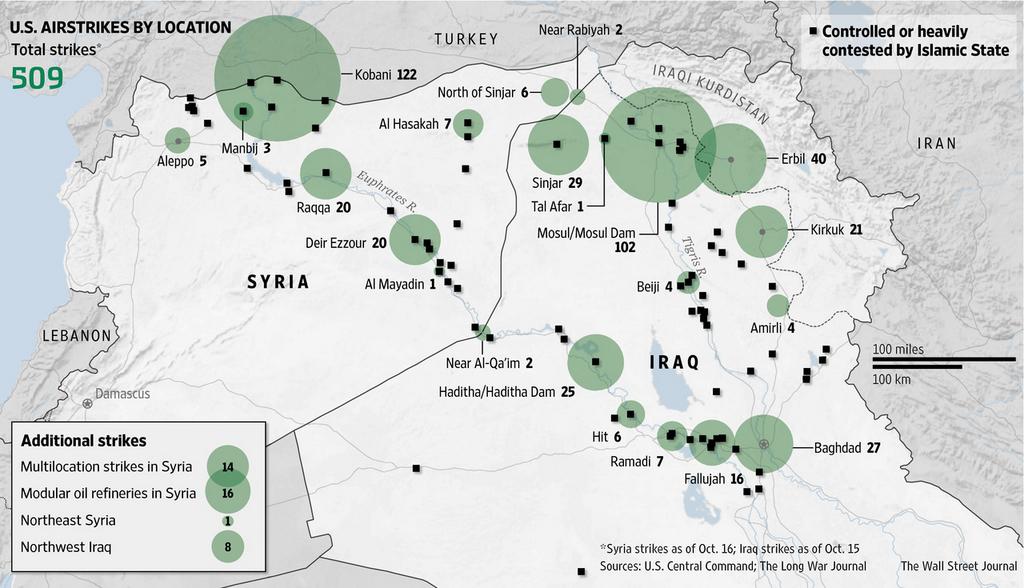
“Our main focus right now is enabling the efforts of the Iraqis.” General Lloyd J. Austin III, Commander, Central Command said on a press briefing, “We are enabling the efforts of the Iraqis in their fight against ISIL; in addition to halting ISIL’s advance, the Iraqis must secure their border, regenerate and restructure their forces to ensure that they are able to provide for the sovereignty of their country going forward.”
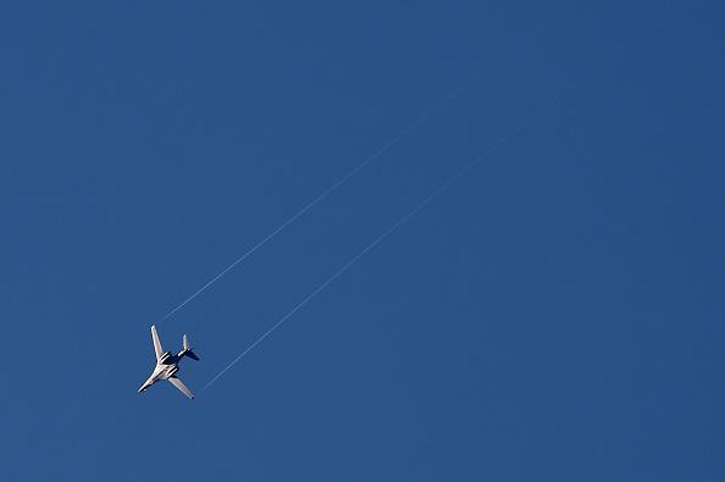
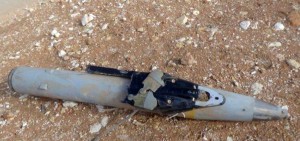
Austin said the airstrikes are targeting very specific capabilities, with the intent to degrade ISIL’s command and control, their ability to project combat power, and sustaining their forces. According to Austin, these precision strikes have targeted targeting ISIL’s communications, equipment and hardware, their command centers, and vehicle parks, where plunder tanks and Humvees taken from the Iraqi army were parked. Oil refineries which are now under ISIL’s control were also targeted.
“ISIL derives significant revenue from oil production, and so by striking these types of facilities, we reduce their ability to generate the funds and the fuel required to sustain their operations. And we are having the desired effects.” Austin explained.
“We’re seeing evidence of this not only in our battle damage assessments, but more important, we’re noting changes in the enemy’s behavior and tactics that reflect his diminished capability and restricted freedom of movement. For example, we’re no longer seeing them move around the country in large convoys. Now they’re mostly traveling in civilian vehicles in smaller numbers. This is hindering their ability to mass and to shift combat power.” Austin stated, adding that ISIL commanders have already altered their methods of communication, which is inhibiting their ability to coordinate and synchronize their efforts.
“we’re noting changes in the enemy’s behavior and tactics that reflect his diminished capability and restricted freedom of movement”
Those strikes are measured to achieve their goals while minimise collateral damage, especially with concern to strikes conducted in areas populated by Sunnis who may be regarded as ISIL support base. “We’ve been very careful in how we’ve gone about conducting strikes because we want to avoid unnecessary collateral damage. Had we killed a lot of innocent civilians, and specifically in Sunni areas, I think that it’s fair to say that we would be in a much different place at this point. But because we’ve done this the right way, we’ve secured the support of our Sunni Arab partners in the region. And together, we are making progress.”
“I do want to emphasize that the airstrikes that we’re conducting are just one element of the campaign to counter and ultimately destroy ISIL.
“Mosul will be an important fight and a difficult fight” Austin promised
“Iraq is our main effort” Austin stressed, “The things that we’re doing right now in Syria are being done primarily to shape the conditions in Iraq. And once the Iraqis are able to get a better handle on the situation inside of their country and regain control of their border, that will help to localize the problems a bit more. This will serve to restrict ISIL’s freedom of movement and specifically, his ability to send reinforcements from Syria into Iraq.
Since the coalition strikes began in August 2014 ISIL forces have increased awareness to the threat and adapted their movement and conduct to avoid attacks, making targets harder to find and more difficult to hit. They are becoming more adept with the use of electronic devices, don’t fly flags and ceases moving in long convoys as they did in the past. They also tend to conceal headquarters to prevent their location or identification by Coalition intelligence gathering. ISIS is also turning to exploit the local population populations for concealment, driving coalition forces to shorten targeting cycles.
The foreign nations represented at the meeting included Australia, Bahrain, Belgium, Canada, Denmark, Egypt, France, Germany, Iraq, Italy, Jordan, Kuwait, Lebanon, the Netherlands, New Zealand, Qatar, Saudi Arabia, Spain, Turkey, United Arab Emirates, and the United Kingdom.
SInce the air strikes began in August 2014 the U.S. military has spent $424 million in its military campaign against the Islamic State group in Syria and Iraq, the Pentagon said. The daily cost of operations is about $7.6 million.









